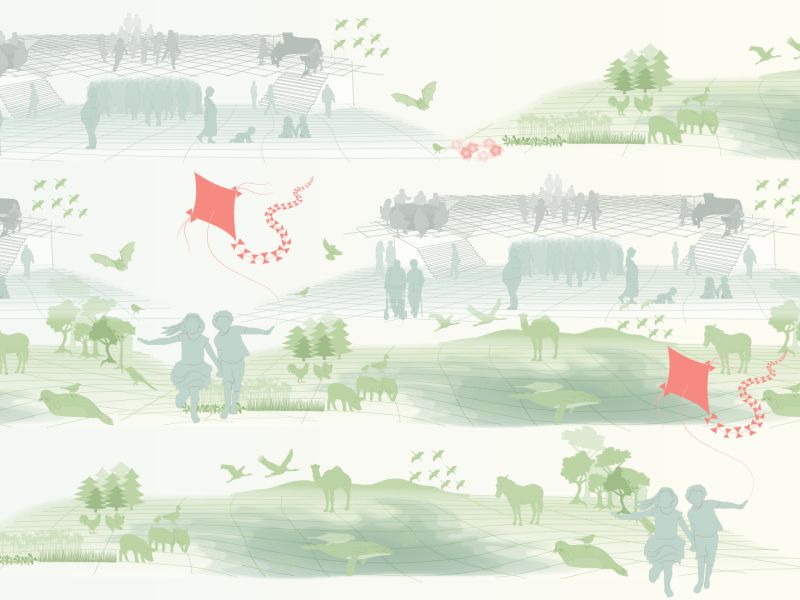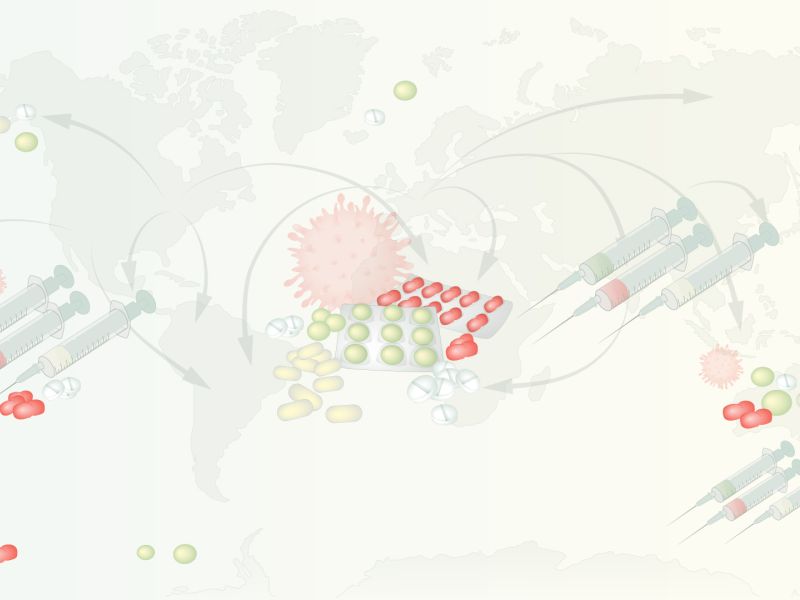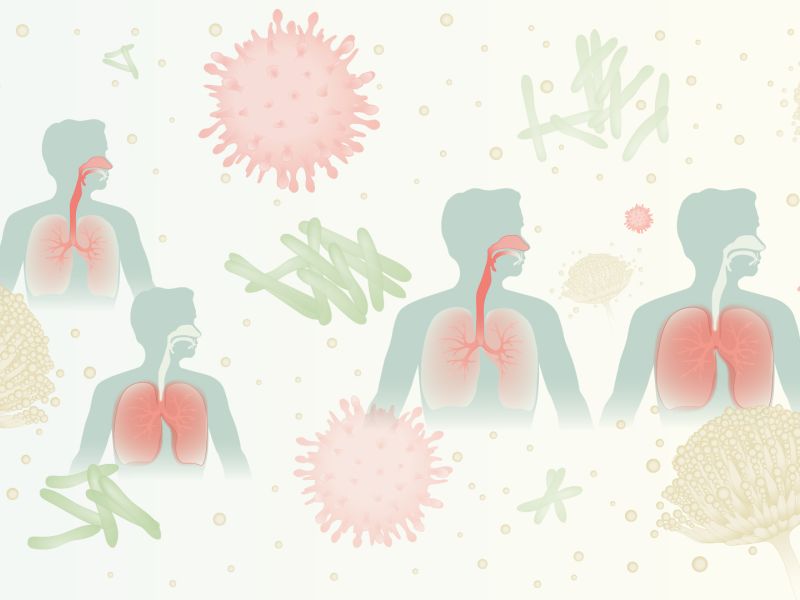Our research
priorities
Our research-
priorities
We believe that effective pandemic preparedness is only possible through collaboration — across disciplines, sectors, and borders. Our research priorities are built on that principle.

The Human-Animal-Environment Interface
How are ecosystems connected? Which new pathogens are emerging—and why? How exactly do diseases jump from animals to humans? And how can better farming practices help prevent the next pandemic?

Future Pandemic
Management
How can we make our current healthcare system more resilient? What lessons can be learned from mistakes made during the last pandemic? And how can we tackle resource shortages and find lasting solutions?

Disease burden
Disease burden How can we reduce health and social inequalities? What immunity already exists in the population — and what’s still needed? How can we protect society and stop the spread of misinformation?

Pandemic-Resilient Education Systems
How can we ensure that children and young people aren’t forgotten during future pandemics? And what steps must we take to design education system that make learning possible eve in times of crisis?
Leadership & Structure of the Leibniz Lab Pandemic Preparedness

The Steering Committee meets every two weeks and plays a central role in driving our mission. It is responsible for implementing the research agenda and allocating funds, ensuring that all participating institutes are actively involved in decision-making.
The committee is chaired by the spokesperson and co-spokesperson, who serve as the vital link between the Executive Committee and our broad network of stakeholders.
Our stakeholders include a diverse range of federal ministries, authorities, and institutions, all of whom contribute to shaping and supporting our work. Key stakeholders include:
Federal Ministry of Health (BMG), Federal Ministry for Economic Affairs and Energy (BMWi), Federal Ministry of Research, Technology, and Space (BMBF), Federal Ministry of Agriculture, Food, and Rural Affairs (BMEL), Federal Ministry for the Environment, Nature Conservation, and Nuclear Safety (BMU), Federal Ministry of Education, Family, Seniors, Women, and Youth (BMFSFJ), Federal Ministry of Justice and Consumer Protection (BMJV), Federal Foreign Office, Standing Conference of the Ministers of Education and Cultural Affairs (KMK), Robert Koch Institute (RKI), Friedrich Loeffler Institute (FLI), Paul Ehrlich Institute (PEI), World Health Organization (WHO), Federal Institute for Prevention and Education in Medicine (BIPAM)
Collaborations: The Leibniz Lab Pandemic Preparedness benefits from extensive collaboration with Leibniz research associations and networks. These include universities, research institutes, and centers of excellence outside the university sector. Together, they work on current, high-impact scientific and social challenges in a deeply interdisciplinary way.
All members of the 41 Leibniz Institutes are Scientific Board Members.
The Scientific Advisory Board consists of:
Prof. Dr. Stefan Bornstein, Medical Clinic and Polyclinic III, Carl Gustav Carus University Hospital Dresden, Germany
Prof. Dr. Christine Falk,Institute for Transplantation Immunology, Hannover Medical School, Germany
Prof. Dr. Nicola Fuchs-Schündeln, Berlin Social Science Center, Professor of Macroeconomics and Development, Goethe University Frankfurt, Germany
Prof. Dr. Aris Katzurakis, Professor of Evolution and Genomics, University of Oxford, United Kingdom
Prof. Dr. Nicole Kemper, University of Veterinary Medicine Hannover Foundation, Institute for Animal Hygiene, Animal Welfare and Farm Animal Ethology (ITTN), Germany
Prof. Dr. Stephan Lewandowsky, CChair in Cognitive Psychology, School of Psychological Science, University of Bristol, United Kingdom
Prof. Dr. Jörg Meerpohl, University Medical Center Freiburg – Institute for Evidence in Medicine, Germany
Prof. Dr. Inge Molenaar, Director National Education Lab AI, Behavioural Science Institute, Radboud University, Netherlands
Prof. Dr. Jürgen Richt, NIH Center for Emerging Infectious Diseases, Kansas University, USA
Prof. Dr. Urte Scholz, Department of Psychology, University of Zurich, Switzerland
Prof. Dr. Devi Sridhar, Chair in Global Public Health, Usher Institute, University of Edinburgh, United Kingdom
Prof. Dr. Lothar Wieler, Director, Digital Global Public Health, Hasso Plattner Institute, Potsdam, Germany
Prof. Dr. Christiane Woopen, Center for Life Ethics, University of Bonn, Germany
Prof. Dr. Dorothy Yeboah-Manu, Noguchi Memorial Institute for Medical Research, University of Accra, Ghana